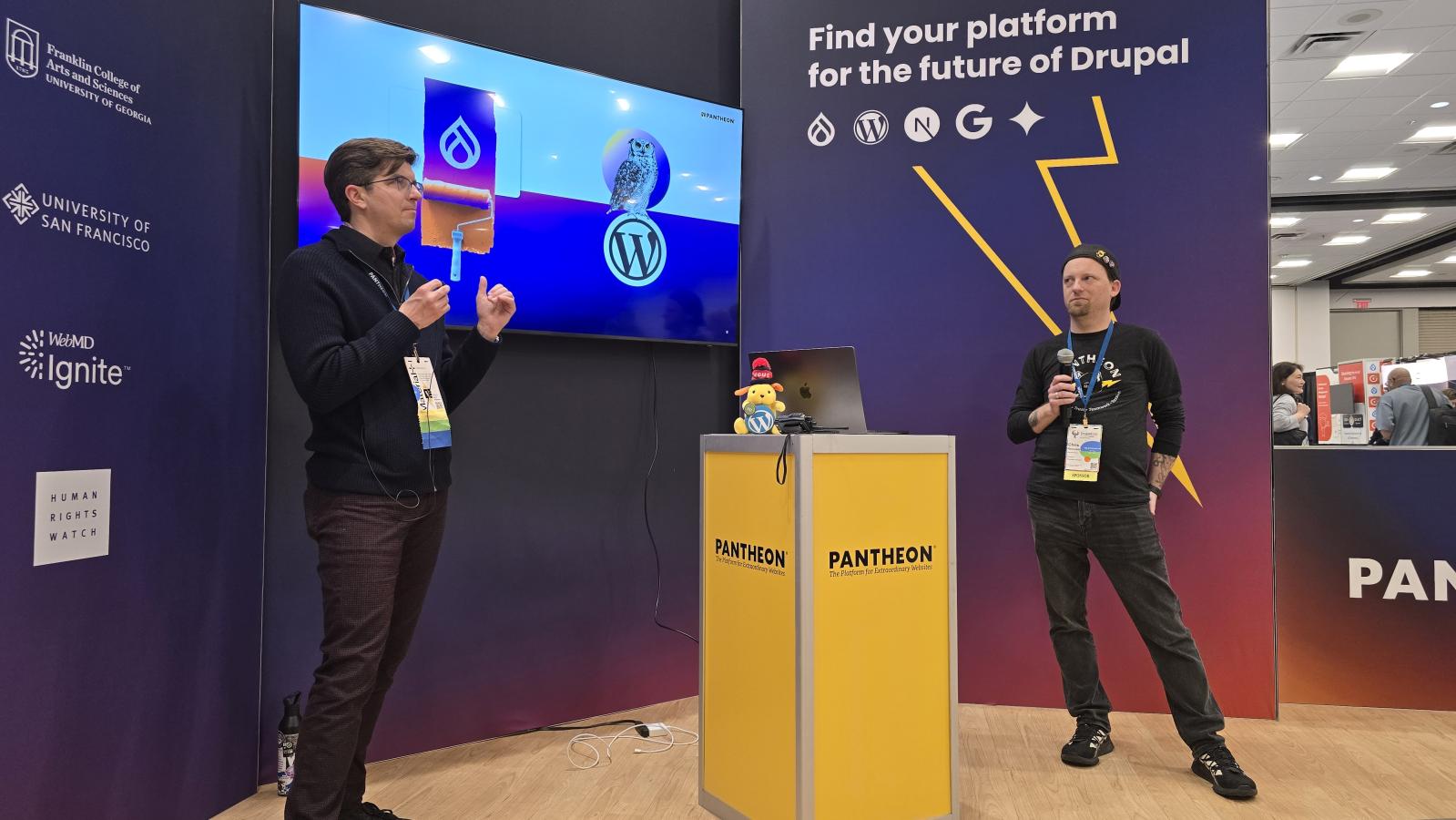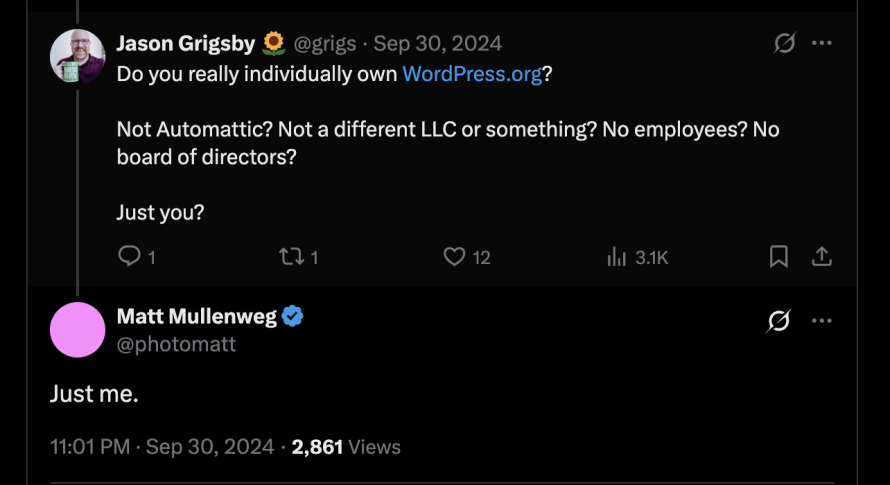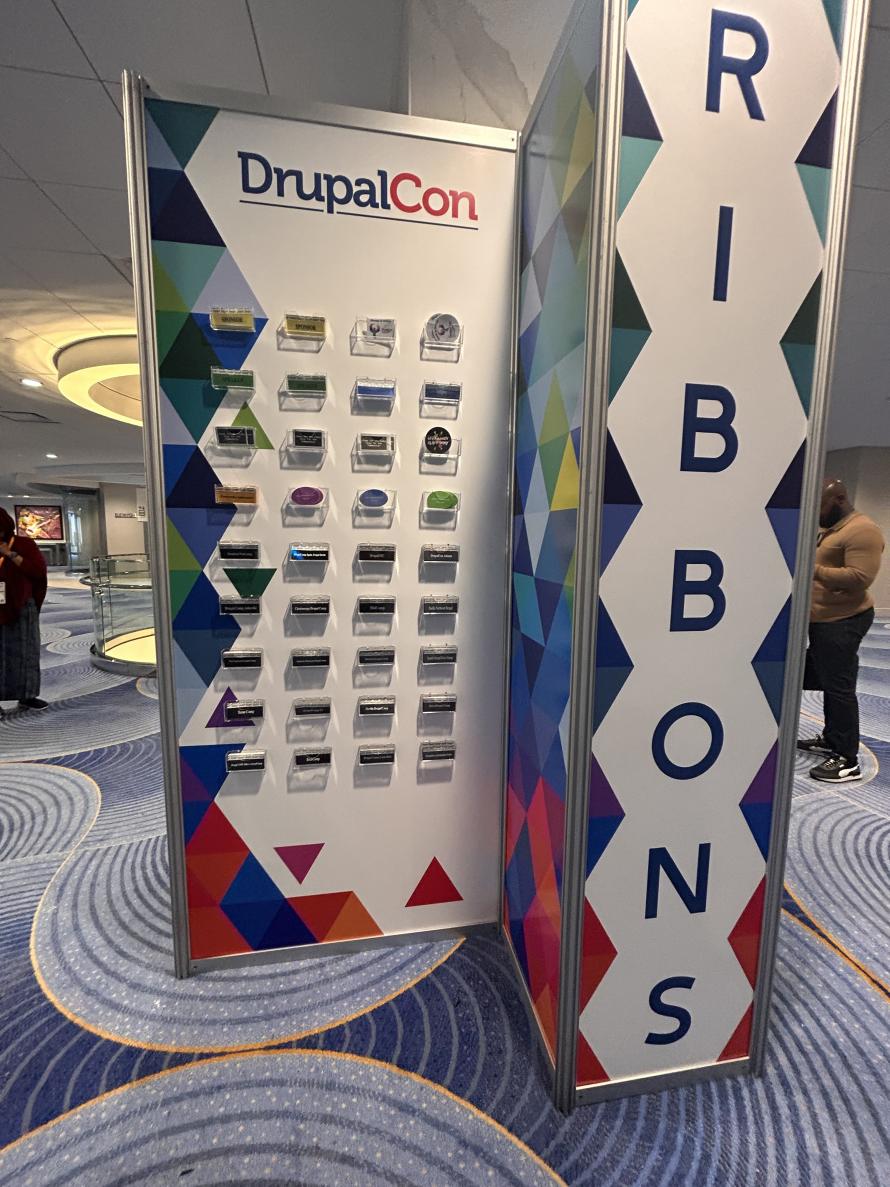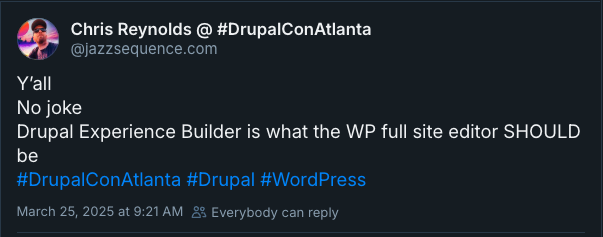A WordPresser goes to DrupalCon Atlanta 2025
Image

Stop me if you’ve heard this one before: a WordPress engineer walks into a room full of Drupal developers. It might sound like the setup for a joke, but there I was, at the end of my first DrupalCon, mic’d up and presenting at the Pantheon booth as if I had valuable insights for the Drupal community. You’re probably wondering how I got here. I know I am.
I’ve been using WordPress for close to 20 years and have been deeply involved in the community for much of that time. When I joined Pantheon three years ago, I really wanted to go to DrupalCon to see what the fuss was about. But it wasn’t until this year, with the new title of Developer Advocate, that I finally got the opportunity to attend. I didn’t know what to expect as I headed towards my gate to Atlanta with no small amount of trepidation and imposter syndrome.
These are my thoughts about what I learned from my first DrupalCon. And since my colleague and a Drupal Association member, Alex Moreno, wrote a similar post about his WordCamp Europe experience, consider this a bit of a sequel.
DrupalCon felt like a (flagship) WordCamp
From the venue to the schedule to the catering, the scale and setup of DrupalCon felt like what I would expect at a big WordCamp (like WordCamp US, EU, etc). But I have to admit I did a doubletake when I saw the ticket price. What I would learn later during the Community Summit (as well as chatting with Alex directly over dinner) is that the comparatively high ticket price for DrupalCon is because events make up 60-70% of the Drupal Association’s funding. WordPress doesn’t have the kind of governance that Drupal does, and therefore WordCamps do not need to fund anything other than themselves.
WordCamps have always kept the ticket price low to be as inclusive as possible. I believe that this is perhaps to a fault – I think that large, flagship WordCamps could afford to charge more. Much like the learning I had when I was freelancing that raising your prices results in better clients who have more respect for the work you do, WordCamps could afford to raise the entrance fee if for no other reason than to gain an air of professionalism. It would naturally result in making the event seem less like it was targeting hobbyists or small businesses exclusively. Over the last 5-10 years, this has been shifting anyway, as WordPress has matured and agencies get commissioned to work on projects for major Fortune 500 companies. We are yet to see that fully reflected in how we organize our events. For the most part, aside from some lucky locals, WordPress professionals are spending hundreds (or thousands) of dollars to attend a flagship WordCamp anyway when you include airfare, food and lodging. What would WordPress do with the money if it raised ticket prices? That leads me to my next point…
The Drupal Association exists to support the community
Functionally, the non-profit WordPress Foundation is largely responsible for retaining the WordPress trademark. Separately, WordPress Community Support is a non-profit subsidiary that manages WordCamps’ finances. WordCamp organization itself, however, is still run by volunteers, in contrast to Drupal events run by professionals at the Drupal Association. Drupal Association members are hired by the association to fulfill the goals of the Association, whereas WordPress organization is still largely volunteer-based.
Image

The Drupal Association also manages the infrastructure and hosting of Drupal.org. This is in contrast to WordPress.org, of which Matt Mullenweg is the sole owner. The Drupal Association can hire staff (supplemented by volunteers) to manage the day-to-day operation of such a large internet property as well as using some of their budget to pay for the operating costs.
The Drupal Association also includes a community-elected Board, which helps to steer the allocation of funds (again, largely earned through events like DrupalCons) towards various initiatives, programs, and Drupal projects (like Drupal CMS). Whereas founder Dries Buytaert remains the software development project lead (with direct responsibilities divided between a core committer team and various working groups), the Drupal Association manages the non-technical aspects of the Drupal project and community.
Many of us in the WordPress community have conflated the WordPress Foundation and WordPress.org as “the community” when, in fact, these are all separate entities. In the Drupal space, the connection between Drupal.org, the community and the Drupal Association is more formal.
We’re more similar than we are different
One of the things I talked about in my end-of-event reflection presentation at the Pantheon booth (excerpts of which you can see in the video I made at the event) is that the Drupal and WordPress communities are more similar than we are different. The people feel very much the same. With a different logo, I could have been standing in a room of WordPress agencies and developers (and, in many cases, I was, because a number of Drupal agencies do both).
WordPress and Drupal have the same set of challenges. We’re both going up against proprietary, corporate-funded, massive monolithic projects like Adobe Experience Manager, Sitecore and Squarespace. We both struggle to find new contributors to the ecosystem, with PHP becoming a less popular development language (in favor of newer, more appealing JavaScript frameworks like React, Next.js and Vue). Possibly as a result of that, both WordPress and Drupal have invested heavily in major JavaScript overhauls of large components of the CMSes. Events for both WordPress and Drupal are hard, expensive and time-consuming, and depend on some kind of financial backing to foot the upfront costs.
Image

When I first arrived, across from the registration booth was a display with a bunch of stickers. “Come for the code, stay for the community” was the one that stayed with me. Over the course of the week, I heard that phrase repeated like a mantra and realized that it was a theme within the Drupal community.
While I’ve never heard those precise words articulated in the WordPress ecosystem, I know their meaning to be true for many of my friends and colleagues there. We stick around for the people around us; it’s the people that make us passionate about the WordPress project.
Experience Builder is the full site editing framework we wanted
First, if you haven’t seen it yet, watch the demo of the recent changes in Drupal CMS’s Experience Builder. I posted my reaction on Bluesky in real time.
Image

I’ve used full site editing in WordPress core a fair amount. Notably, I used it to re-create a site originally hosted on a third-party platform using nothing more than the default theme and the site editor. The site editor is here to stay, and it wasn’t terribly surprising to see that the new, in-development Experience Builder looked very similar to the WordPress site editor. However, the demo looked way more fluid and intuitive than the WordPress site editor.
What’s more, the new built-in code editor solves a lot of the problems that I have personally experienced with the site editor — specifically when I want to apply code or CSS to specific pages or blocks on top of the Gutenberg styles. I’ve had to resort to using !important flags for some rules because a lot of Gutenberg’s styles are all in-line, and I don’t have access to apply markup to the elements I want to change. Combine the code editor with Drupal’s AI assistants and you have tools that can massively speed up prototyping.
With WordPress development slowing down and Drupal development ramping up (Drupal CMS 2.0 is expected to come this October), this is a huge opportunity for Drupal to potentially fill in the gap. And honestly, I’m not mad about it. I believe that competition is good for the ecosystem, but more than that, I am very interested in seeing whether Drupal can stick the landing. If Drupal CMS shapes up to everything that was promised in the Driesnote, it will be a very exciting ecosystem to work with.
We should talk more
It’s obvious that Dries has been influenced by what’s been happening on the WordPress side of the fence. I can’t say that WordPress has done much of the same. And often in WordPress circles, I’m the only one in the room who has any insight into what’s going on in Drupal (which isn’t even all that much). My main takeaway from DrupalCon is that we should be in each others’ spaces, collaborating and comparing notes more, and that the Drupal community is incredibly kind, passionate and inclusive – the same as the WordPress community.
I hear things like “you need to pick the best tool for the job” when debating whether to use WordPress or Drupal for your site and I think that I can make WordPress do anything! But, I also know there are things that I would like WordPress to adopt from Drupal. It’s only through talking to each other and being in each other’s spaces more, we can see what we’re missing and what we can learn to make our community and our software even better.


